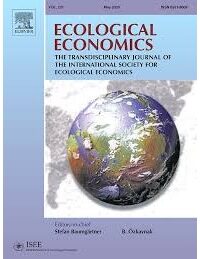Beyond Regulatory Governance?
On the Evolutionary Trajectory of Transnational Private Sustainability Governance

Literature on transnational private sustainability governance recognizes that the governance of sustainability standards in global supply chains by private standard organizations (PSOs) is subject to change. Literature identifies at least three narratives about what drives such change and in what direction it may go. First, PSOs focusing on similar issue areas and sectors will change due to interactions of a competitive or cooperative nature, resolving or prolonging coordination problems. Second, private governance will increasingly be encapsulated by governmental, nongovernmental and intergovernmental efforts at meta-governance that change the modes of practices of PSOs Third, private governance will become the arena for contestation among “Northern” and “Southern” actors over what constitutes sustainable production and who stands to gain from it. In different ways, all three narratives present a pathway of change that leads to either further institutionalization of PSOs, or to further politicization of PSOs as modes of governance. In all three pathways, PSOs remain relevant, providing regulatory governance for sustainable production.
This commentary proposes a fourth narrative of change next to these three relevant narratives. It argues that firms develop new policy instruments that strip sustainability interventions in supply chains from their regulatory governance qualities. Meanwhile, some PSOs expand functions that are not of a regulatory governance nature. That PSOs have non-regulatory functions has long been acknowledged but many scholars have over the years increasingly focused on PSO’s potential and impact as regulators. Now that the non-regulatory repertoire of PSOs seems to be increasing in some sectors, and businesses are promoting non-regulatory solutions for sustainability, it is time to focus on this development as significant for our consideration. This commentary suggests a pathway on the basis of the assumption that PSOs may deviate from their regulatory governance-repertoire in an attempt to be responsive to their sponsors. If this pathway gains currency, it could challenge the potential for sustainability-standard-setting as a mode of authoritative and inclusive governance verifying business compliance with sustainability criteria.


